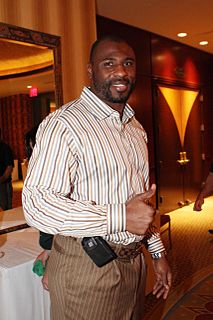A Quote by Rex Stout
To read of a detective's daring finesse or ingenious stratagem is a rare joy.
Related Quotes
I read a lot of detective stories because they always deliver. They give you a beginning, a middle, and an end - a resolution. The modern novels I read don't always deliver because I'm looking essentially for a story. As in Shakespeare, "The play's the thing." In particular I read detective stories for pacing, plot and suspense.
Nicky Egan has the finesse of Bonnie Raitt merged with the primal force of Janis Joplin. It is a rare combination. Her passion is a joy to behold - and her talent is undeniable. She belongs in any conversation about great contemporary female soul singers. If you're up for a revelatory evening, then put her high on your list.
I often use detective elements in my books. I love detective novels. But I also think science fiction and detective stories are very close and friendly genres, which shows in the books by Isaac Asimov, John Brunner, and Glen Cook. However, whilst even a tiny drop of science fiction may harm a detective story, a little detective element benefits science fiction. Such a strange puzzle.
It will be said that the joy of mental adventure must be rare, that there are few who can appreciate it, and that ordinary education can take no account of so aristocratic a good. I do not believe this. The joy of mental adventure is far commoner in the young than in grown men and women. ...It is rare in later life because everything is done to kill it during education.
There are, by the most conservative counting, two grave and deeply regrettable collateral victims of the peer-review gruesome stratagem: one is the daring of thought (wished-washed to the lowest common denominator), and the other is the individuality, as well as the responsibility, of editors (those seeking shelter behind the anonymity of "peers", but in fact dissolved in it, in many cases without a trace).
I think the detective story is by far the best upholder of the democratic doctrine in literature. I mean, there couldn't have been detective stories until there were democracies, because the very foundation of the detective story is the thesis that if you're guilty you'll get it in the neck and if you're innocent you can't possibly be harmed. No matter who you are.




































